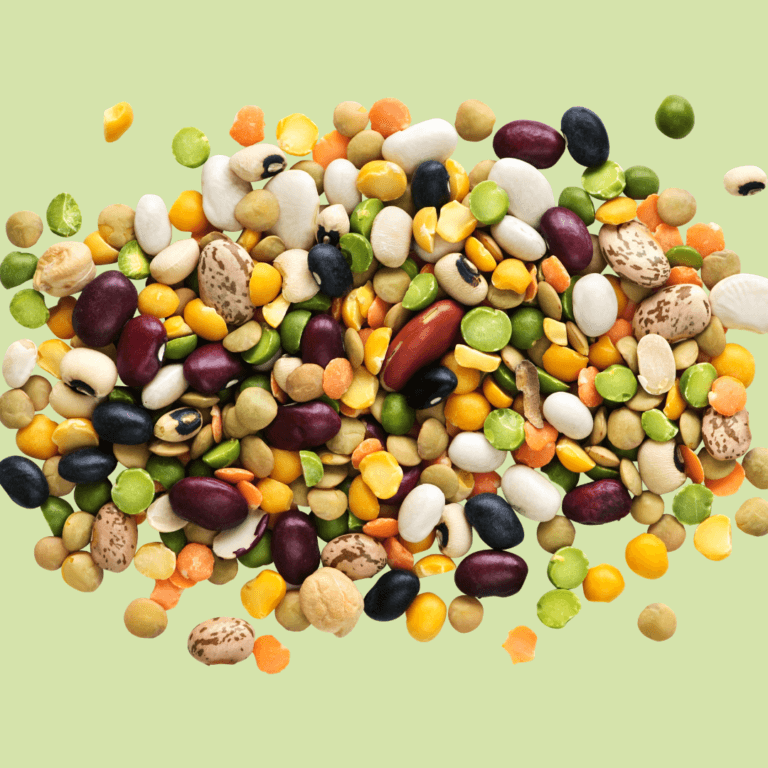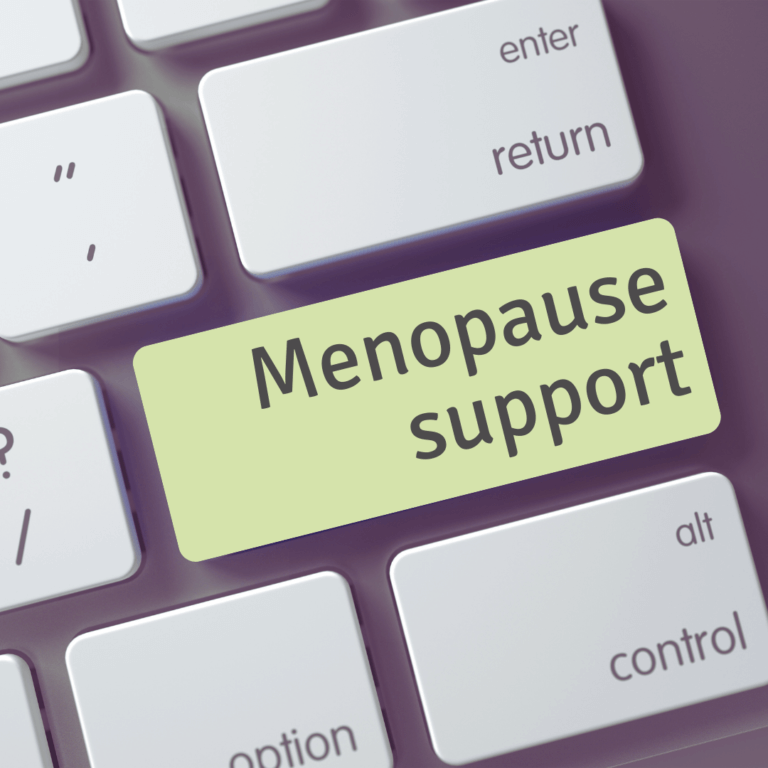There can be a number of reasons for lacking energy and motivation for doing anything. Common perimenopause symptoms such as struggling to get enough good quality sleep, or feeling more anxious can lead to fatigue. However, fatigue can also be caused by medical conditions such as anaemia, thyroid disorders or a folate or vitamin B12 deficiency. If you think this may be the case its worth speaking with a Registered Dietitian, Nutritionist or your GP to check this out.
In terms of your nutrition and dietary habits, here’s nine key considerations to help you fight fatigue and feel more energised.
1. Stay hydrated
It sounds simple, but getting into the habit of keeping well hydrated can be a challenge. Even being a little bit dehydrated (often before you feel thirsty), you may start to feel tired and less alert or find it more difficult to concentrate. Dehydration affects the flow of oxygen around your body and brain and slows blood circulation.
Make sure you’re drinking plenty of water throughout the day to stay hydrated. Herbal teas and infused water are also great options to keep you well hydrated. Starting the day with a glass of water is a useful habit to get into. Whether its plain water or warm water with a bit of lemon it’s good to start hydrating as soon as you wake up. Sip at a water bottle throughout the day, or set a reminder on your phone to drink.
2. Avoid the sugar rollercoaster
Simple sugars (e.g. from biscuits, cakes, sugary drinks) enter the bloodstream quickly and raise blood sugar levels quickly. This leads to a short-term spike in blood sugar levels. But, what goes up quick, also comes down quick. So after a brief burst of energy, the rapid conversion of glucose by insulin leads to a sharp drop in blood sugar levels. The result? – an energy crash that leaves you feeling fatigued and craving another sugary ‘hit’ to get your blood sugar levels up quickly again.
To avoid this rollercoaster, make sure you don’t leave big gaps between eating. You may find that having a meal or snack every 2-3 hours works well for you (everyone is unique though). When you do have something to eat, aim for a healthy balance of protein foods, vegetables, healthy fats and good quality (higher fibre) carbohydrate foods. For example – a yoghurt, berries and a few nuts as a snack, or stir-fry veg, brown rice and salmon for a blood-sugar balancing meal.
3. Include fibre-rich foods
Almost all of us need to eat more fibre-rich foods. In the UK, only 2% of women (aged 19-64y) met the 30g a day fibre recommendation. The average fibre intake for adult women in the UK is just 15.5g (NDNS, 2025)
Including fibre-rich foods not only keep you feeling full for longer, they also help stabilise your blood sugar levels – and help you avoid that sugar rollercoaster (see above). Fibre is not actually absorbed by your body like other carbohydrates are, and so it doesn’t cause a spike in blood sugar (i.e. there’s no energy high and then subsequent energy dip). Having more stable blood sugar levels throughout the day, means the body is better able to regulate hormones such as insulin and cortisol (the stress hormone), and so can help you sleep better (and re-energise) too. Vegetables, pulses, nuts, seeds, whole fruits and whole grains are excellent sources of fibre, so make sure you include these foods.
4. Tune in to the type of hunger you feel and how to respond
Eating mindfully can help you become more aware what your body is telling you and identify the type of hunger you are feeling. Are you feeling physically hungry? Or are you craving a biscuit because you’re stressed, sad or bored? When you eat in response to your emotions, then you’re more likely to crave ultra-processed foods, and highly palatable foods – the foods high in sugars, salt and fats – like biscuits, cakes or crisps.
If your hunger is more emotional rather than physical, think about alternative, non-food ways, to manage your emotions. For example, a brief change of environment (a 5-minute walk outside), listen or dance to your favourite song, phone a friend, or spend a few minutes journaling. If you do feel physically hungry, it’s important to respond by having something to eat. This will prevent a big dip in blood sugar and energy levels (back to that rollercoaster again!).
5. Limit or avoid alcohol
Alcohol is known to dehydrate the body – not great for energy levels (see point 1 above). The carbohydrates in some alcoholic drinks can spike blood glucose levels which then leads to a rapid drop in energy levels (fatigue). The effects of alcohol varies between individuals. For some, even a small amount can lead to a more restless and disrupted sleep (for example drinking alcohol before bed can lead to more frequent toilet trips during the night).
Alcohol has a sedative effect as it depresses the central nervous system. It can also disrupt your natural body clock as well as the quality and amount of sleep. Limit your alcohol intake or try avoiding it for a few weeks to see how this impacts your energy and sleep.
If you do have an alcoholic drink in an evening, have some unsalted nuts and drink water along with it. The protein and healthy fats in the nuts will help avoid big fluctuations in blood glucose levels and the water will help hydrate and slow down the rate you consume alcohol.
6. Limit caffeine
Although a caffeinated coffee, tea or ‘energy’ drinks can provide a temporary energy boost, they can also disrupt your sleep and leave you feeling more fatigued in the long run. Switch to decaf, especially from around midday onwards.
There is some evidence that suggests we become more sensitive to caffeine as we get older, particularly in terms of its impact on sleep (Frozi et al, 2017). You may find as you go through menopause that your regular mid-afternoon coffee that used to have no impact on your sleep, now is a ‘sure thing’ for feeling wide awake at night.
7. Are you getting enough Vitamin D?
Low vitamin D is common, especially among women in midlife, and it has been linked to fatigue and low energy levels. Studies have shown that a lack of vitamin D can have a negative impact on energy levels (Alavi, 2015). Taking a vitamin D supplement, eating vitamin D rich foods and having a safe amount of exposure to sunlight can help keep your vitamin D levels topped up.
As a general rule, your body can only make vitamin D when your shadow is shorter than your height – a good reason to get outside for a walk around lunchtime. For more info on vitamin D see my previous blog post here.
8. Consider your Iron and Vitamin B12 levels
Iron deficiency is a common cause of fatigue, especially among women. Iron is an essential mineral for making haemoglobin, a protein that carries oxygen around the body. Low iron levels lead to low haemoglobin levels which can lead to lower levels of oxygen in the body, resulting in fatigue (NHS, 2024).
Vitamin B12 is vital for making healthy red blood cells which carry oxygen around the body. Low levels of Vitamin B12 can reduce the oxygen being transported to your body’s cells, making you feel tired and weak (NHS, 2023).
9. Include exercise snacks
Ok, this is not actually a food tip, but these are really useful for boosting your energy. Include several ‘exercise snacks’ throughout the day. Exercise snacks are short bouts of physical activity lasting about a minute. When you are feeling fatigued, it’s likely that the last thing on your mind is heading to the gym or doing a workout. But, one minute of: dancing to a good tune, doing knee raises, squats, or hula hooping when waiting for the kettle to boil or during an ad-break on TV – that sounds a bit more do-able, right?
Making changes to your eating and lifestyle habits can take quite an effort, especially to begin with. Try out one or two small changes at a time to explore what works best for you. If your fatigue persists, seek advice from your GP or a qualified health professional.





